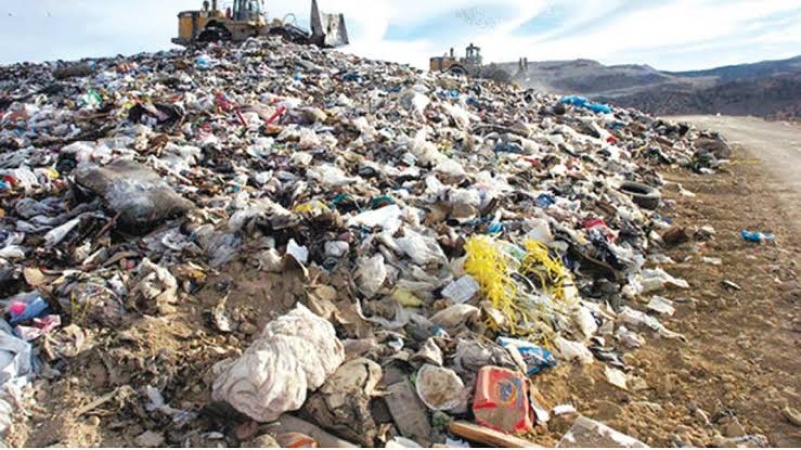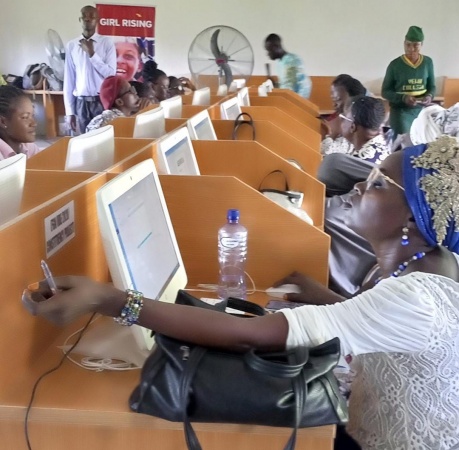A call for action on tackling menace of dirty environment and open defecation in Nigeria
Posted by Editorial | 3 years ago | 2,657 times

By Ahmed Iyanda and Abdulraheem Akintunde
It is mind-boggling that over 172.7 million of Nigeria’s population lives in an unsanitary environment despite the nation being the giant of Africa with over 200 million populations. In a recent study carried out by a non-governmental organization (NGO), Clean-up Nigeria (CUN), in its 2021 report titled ‘The State of the Nigeria’s Environment Report’.
According to the report, only four states out of the 36 in the country, namely Lagos, Oyo, Abuja and Bauchi, have sanitary landfills: the remaining states operate open dumping. The report also indicates that Borno State is currently the dirtiest state in Nigeria, while Akwa Ibom State has retained its previous position as the cleanest state in the country.
This is accounted for the spread of diseases like Lassa fever, Gonorrhea among others that have been rapidly growing in Nigeria ever since its outbreak in the country because of the dirty environment in which people live. Undeniably, in contrast to Nigerian environment situation, major world cities like London, Washington, Paris are famous because of the beauty of their sparkling clean environments.
The fact that it has been established that rats and Lassa fever have strong links through a species of rodent known as Multimammate rat, which breeds mostly in dirty environments in the country, should have spurred the need for the people to keep good hygiene and live in a clean environment in the country.
Previous World Health Organization studies have examined the aggregate disease burden attributed to key environmental risks globally and regionally, quantifying the amount of death and disease caused by factors such as unsafe drinking-water, sanitation, indoor and outdoor air pollution.
Clean-up Nigeria (CUN), study observed that two percent improvement was recorded in the procurement of waste management equipment by some states and local councils in the country in 2021, and there was a significant drop in waste management equipment as most of the equipment previously on ground became unserviceable. The NGO produced the report in collaboration with international partners, including the International Council for Local Environmental Initiatives (ICLEI), Canada; Keep America Beautiful (KAB), USA; DSZ, Germany, SUEZ Foundation, France and Clean-Up the World, Australia.
Performance indicators from the report showed that 170 million Nigerians lived in a dirty environment in 2020. By indication, funding by states and local government councils for waste management services reduced drastically when compared to the increased services offered.
There has been an inadequate sanitation/hygiene practice as it used to be.
These findings showed there was gross inadequate sanitation/hygiene practice of people in over 35 states and the FCT, hence, the call for multiple strategies by all stakeholders given that the practice of open defecation in all the 36 states of the Federation and FCT increased from 27 per cent in 2020 to 34.6 per cent in 2021. Nigeria is the global capital of open defecation.
In order to have clean environments in Nigeria, there's a need for government at all levels, including stakeholders to properly sensitize the public to ensure cleanliness in the environment, especially in the most affected states.
Indeed, while no one can protest the call for a clean environment, it helps to talk about the most important of the benefits. The first and primary reason is for the better health of Nigerians. Hygienic environment helps people to stay fit and thus enhance a longer and healthier life.
Also, cleaner environment/cities attract more tourists from around the world. This, of course, has a positive effect on the economy of the nation. Historical buildings, iconic sites along with cleanliness constitute the perfect combination that attracts investors and tourists.
To achieve a cleaner and sustainable environment in Nigeria, we have to wholly embrace the culture of global advocacy on tree planting to complement the green environment and avoid all habits that mess up the environment. Also, key stakeholders such as government, Non-governmental organizations, civil society and other such relevant bodies must step up enlightenment campaigns on the imperatives for a cleaner environment.







